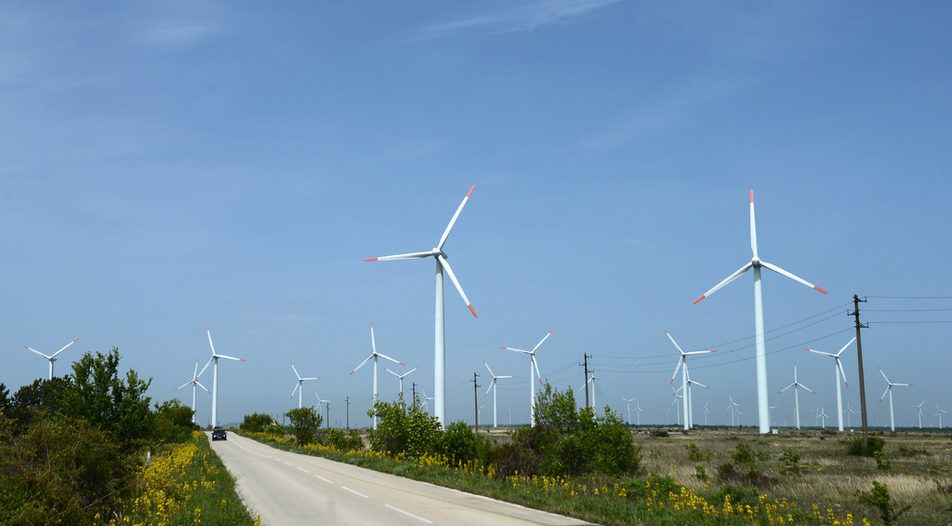Sometimes, 5% can be the difference between profit and loss in the business of renewable energy. With an amendment to the Energy Act, the parliament last week exempted new renewable energy installations from the requirement to contribute 5% of their monthly revenues to the state-owned Electricity System Security Fund (ESSF).
After several months of delay, in January authorities finally passed a series of amendments to the Energy Act aimed at improving incentives for investments in renewable energy sources. The proposal for amendments came in October of last year from the ruling GERB party but the parliament's final vote was delayed because of an extension to the deadline for submitting position papers.
Incentives to go green
Up until now, the 5% fee was mandatory for all state-owned and private energy producers in Bulgaria. The contribution is raised based on revenues from sold electricity (VAT included). Importers selling on the domestic market also have to pay. Established in 2015, the fund's main purpose is to raise resources to cover expenses of the National Electricity Company (NEK). The 5% fee was rescinded retroactively, from 1 January of this year, although this is of no real significance, as in the days since the New Year not a single renewable energy plant has been put into operation.
Another amendment makes it possible for more producers of electricity from renewable energy sources (RES) to enter the free market, which will ensure better liquidity on the energy exchange. Currently, only plants with a capacity of over 1 megawatt (MW) can sell electricity, whereas, starting 1 July, smaller producers (between 500 kW and 1 MW) will also be able to participate.
The scrapping of the 5% fee is very important to the outlook for investments in renewables as it gives a boost to the competitiveness of new projects on the free market without the need for subsidies. For example, neighbouring countries have no such administrative burden for new RES projects and investments in this area have been significant in recent years, whereas in Bulgaria there is a visible lack of large new green power plants.
This amendment is part of a series of steps, which started 2 years ago. In 2019, the lawmakers scrapped all grid taxes for new renewable installations if their owner uses them for its own needs and feeds the electricity directly, without passing through the grid. This proved a very popular idea with large industrial plants, which can save between 20-60% of their energy bill and fed a boom in local electricity production. Many of those projects will come online in 2021.
In 2020, only about 8% of the country's energy mix could be attributed to renewables (without hydro power plants) and that share is partly due to a 7.6% annual decrease in total electricity production.
The private sector approves
Business organizations support the amendments to the Energy Act. According to the chairman of the Bulgarian Industrial Capital Association (BICA) Vasil Velev, the exemption from the 5% contribution would be an additional incentive for the companies planning to sell electricity on the energy exchange.
"This is an incentive which will reduce the dependency on coal in general," Velev told Capital. Now, grants for investments in energy storage should also be considered, he added, explaining that the idea is to store about 10-15% of capacity in batteries so that the system can be more easily balanced without much involvement from thermal power plants. Such projects are being launched in a number of EU countries seeking funding through the post-COVID-19 economic recovery schemes.
"Promoting new renewable energy projects and including them in the system will increase liquidity on the energy exchange," said Silvia Todorova, director of industrial development at the Bulgarian Chamber of Commerce (BCC). As conditions improve, employers expect investor interest to increase despite the pandemic. "Every step that benefits the environment deserves to be supported, as long as it doesn't burden anyone else in the process," said Todorova and added that the amendments follow the European course for more incentives in green energy.
According to the chairman of the Association for Production, Storage and Trade of Electricity, Nikola Gazdov, dropping the 5% fee is good for the sector because so far the mandatory contribution has taken away the competitive advantage of Bulgarian RES projects over those in Romania, for example, where there are no such fees. "This would be an additional incentive for investors to consider Bulgaria as an attractive destination for doing business," Gazdov told Capital. And while there are currently no projects waiting on stand-by for more favorable conditions, Gazdov believes that the amendments will incentivize investors in the next two years.
The president of the Bulgarian Photovoltaic Association, Meglena Rusenova, believes that the amendment is a logical step towards restarting investments in renewable energy plants by removing an administrative barrier to the market.
Meanwhile, a last-minute proposal by the Movement of Rights and Freedoms (MRF) party for a radical change to the energy sector was withdrawn. In short, the proposal set out a plan to abolish the National Electricity Company (NEK) as the public supplier providing electricity to households at regulated prices. Instead, the electricity supply companies themselves would take on the sale and, respectively, the price risk. This proposal may be revisited depending on the results of the parliamentary election in April.
Sometimes, 5% can be the difference between profit and loss in the business of renewable energy. With an amendment to the Energy Act, the parliament last week exempted new renewable energy installations from the requirement to contribute 5% of their monthly revenues to the state-owned Electricity System Security Fund (ESSF).
After several months of delay, in January authorities finally passed a series of amendments to the Energy Act aimed at improving incentives for investments in renewable energy sources. The proposal for amendments came in October of last year from the ruling GERB party but the parliament's final vote was delayed because of an extension to the deadline for submitting position papers.












